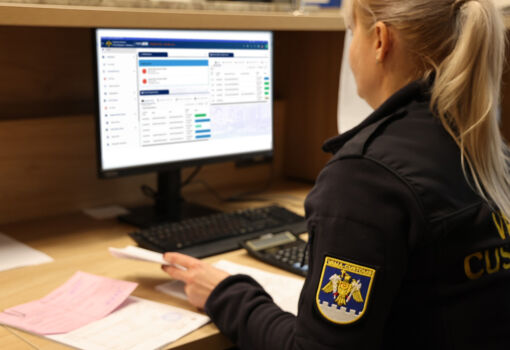
Anton Goncharuk
Then the procedure is simple. The taxpayer is invited to the STS office, offered to voluntarily indicate his real income and pay the tax due for it. This is how the system of voluntary compliance with tax obligations by individuals works.
In this context, the data posted on the official website of the State Tax Service are indicative. According to the agency, the income additionally declared by 185 individuals – citizens who received money transfers for postal items in 2024 amounted to 24.7 million lei.
This refers to the income of citizens obtained as a result of selling goods through postal orders, which were paid by cash on delivery. Cash on delivery is a postal service, which consists in the payment by the recipient to the sender of the cost of the goods that are the subject of postal delivery.
The State Tax Service, in accordance with the provisions of the tax legislation on taxation of undeclared income of citizens, takes measures to identify individuals who use postal services in order to carry out business activities without registration.
As a result of the actions taken by the STS against such persons, during the tax period of 2024, 185 citizens calculated and paid income tax in the amount of 2.4 million lei. Of these, seven people declared income amounts from 300 thousand to 1 million lei (total 3.375 million lei). The largest group (126 people) were citizens who declared additional incomes from 100 thousand lei to 300 thousand lei (total 18.507 million lei). Incomes up to 100 thousand lei were registered by 52 taxpayers (2.888 million lei).
Commenting on this information of the State Tax Service, experts note that precedents of this kind have become more and more frequent in the field of vision of tax officials. Cases, when tax officials track transactions for the sale of goods through social networks or various electronic platforms, are multiplying. For example, receiving or sending things by parcels, including second hand, the STS qualifies as illegal entrepreneurial activity. With all the ensuing tax consequences.
“To date, there is no clear legal boundary between single parcels, when a person bought a thing or it was given to him as a gift, but it did not fit the size, and he decides to sell it. And several or regular shipments, when it is a well-established, but not registered, and therefore illegal business,” says Anton Goncharuk, auditor of PFBC-Privat SRL. – So-called control purchases, which are made by tax service specialists on such ads, have been practiced for a long time. And they are justified if such activities are regular and put in unequal conditions for entrepreneurs who work in the legal field. Because disloyal competition appears. Recently, the owners of one of the well-known retail chains selling clothes appealed to the State Tax Service with a similar request.
Representatives of legal business have been complaining about disloyal competition for a long time. An even more vivid example in this sense is the importation of cars from abroad not for personal use, but for the purpose of subsequent sale. Or buying apartments, then renovating them and selling them, as a result of which the seller pays only 6% capital gains tax. Although the income from several such transactions may fit within the limit set for registration as a VAT payer, often such activities are not registered at all. And the state is often loyal to such transactions, because they are not specified by law. In all likelihood, not yet.
“The problem with such transactions is the complexity of administration,” Anton Goncharuk continues. – How to evaluate them, by what criteria and what minimum amounts should be used? All these issues require not only clear regulation, but also popularization. We need clarification of the state policy in these matters. Moreover, preliminary explanations, at least six months before the entry into force of regulatory norms. So that citizens could register their activities if necessary.

